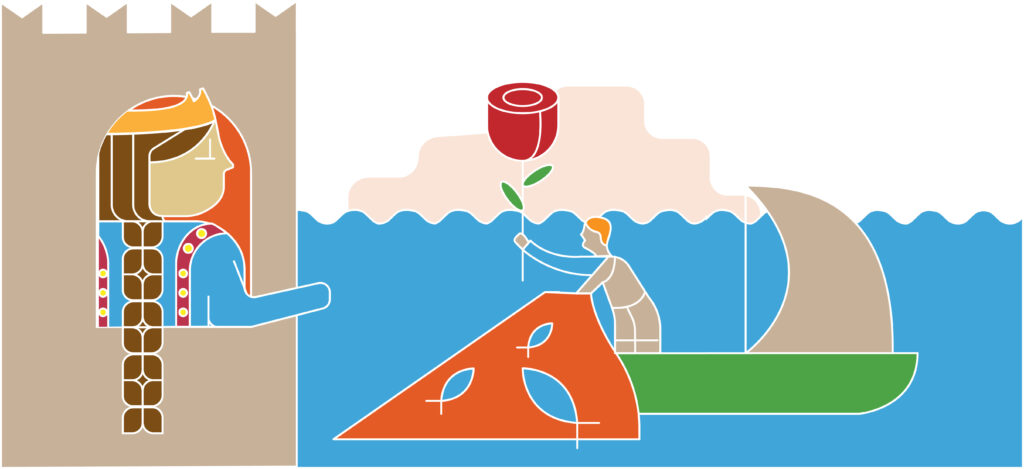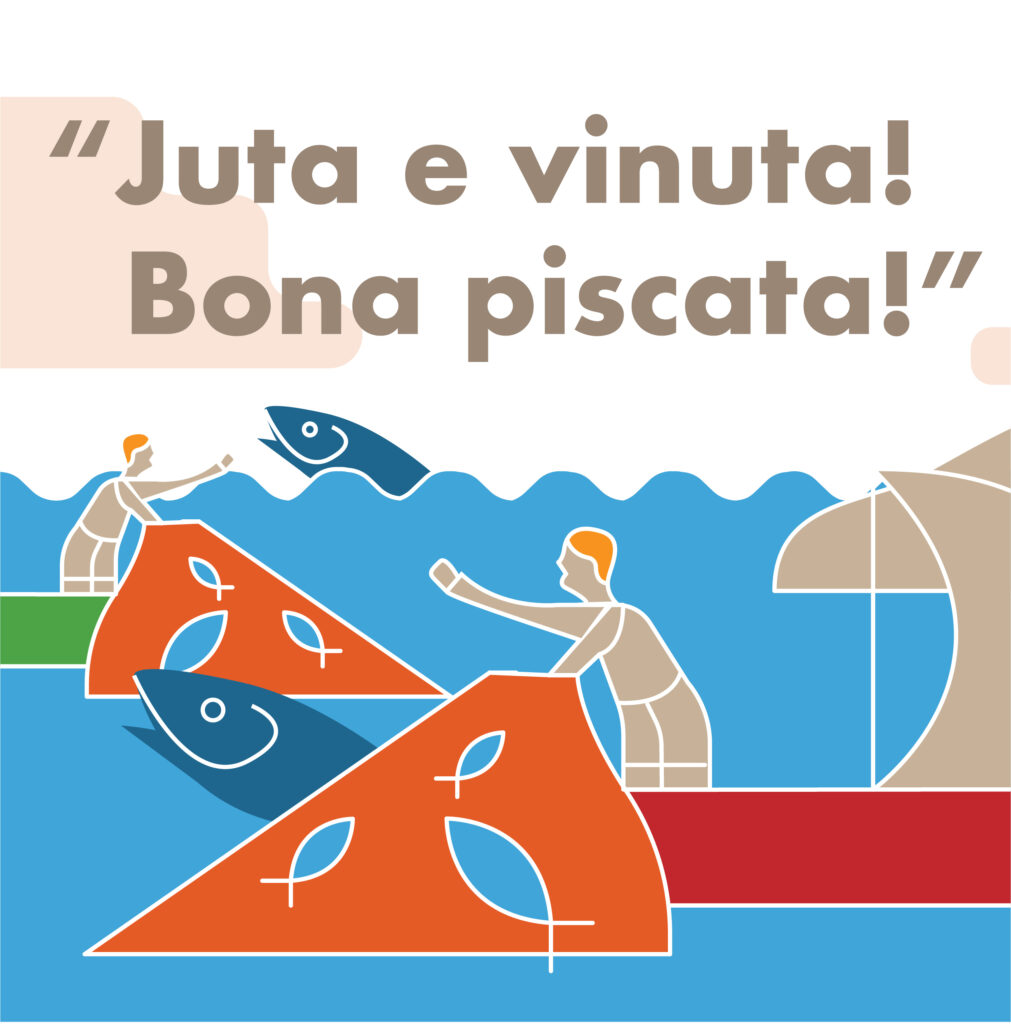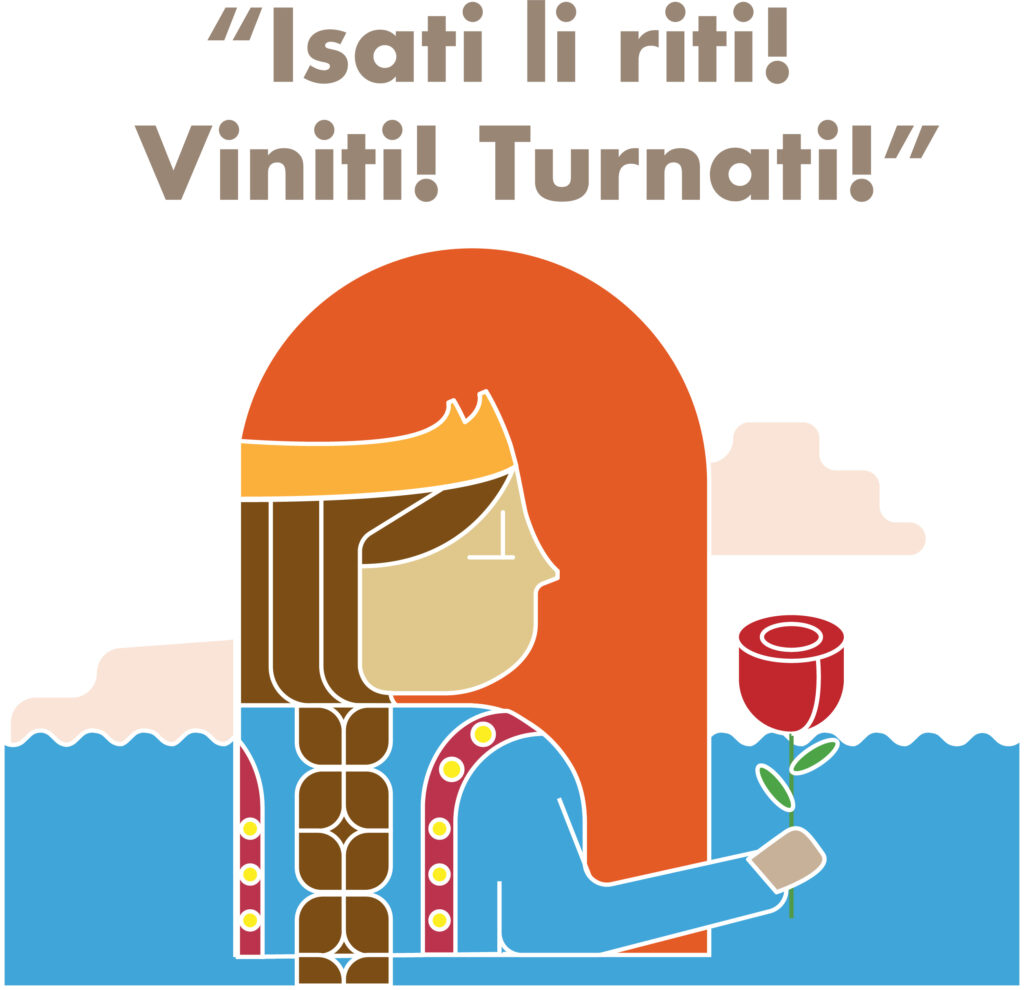Girdino del Castello

La leggenda di Maria la Bella: una storia d’amore e di perdita
Tra le numerose leggende che fanno parte della memoria storica di Brolo, una spicca per la sua bellezza e per il tocco di malinconia che la caratterizza: la leggenda di Maria la Bella.
Si racconta che la bella principessa fosse innamorata di un umile pescatore. Di notte, si affacciava al balcone che dava sul mare e attendeva l’arrivo del suo amato. Il pescatore si avvicinava alle mura del castello con una piccola barca e, aggrappandosi alle lunghe trecce bionde di Maria, si arrampicava per raggiungerla in gran segreto.

Una notte il fratello di Maria si accorse degli incontri clandestini tra i due. Accecato dall’ira, decise di eliminare il pescatore che aveva insidiato la sua bella sorella. Si appostò vicino allo scoglio antistante il castello e, dopo avere atteso il pescatore che si allontanava, lo raggiunse e lo uccise; mise il copro dentro a un sacco, lo legò a un masso e lo affondò in mare.
Da quella notte, Maria la Bella attese invano il ritorno del suo amato, consumandosi in un pianto incessante che la condusse alla morte. Da allora, lo scoglio è noto come “Ploratu” (del pianto), e in alcune notti è possibile sentire lo spirito di Maria sussurrare messaggi di buon auspicio ai pescatori che si avventurano in mare:
“Juta e vinuta!
Bona piscata!”
“Andata e ritorno!
Buona pesca!”


Se il mal tempo li minaccia, invece, li richiama a riva invocando:
“Isati li riti!
Viniti! Turnati!
“Alzate le reti!
Venite! Tornate!
The Legend of Maria la Bella: a tale of love and loss
Among the numerous legends that form part of Brolo’s historical memory, one stands out for its beauty and the touch of melancholy that characterizes it: the legend of Maria la Bella.
It is said that the beautiful princess was in love with a humble fisherman. At night, she would lean out onto the balcony overlooking the sea and wait for her beloved’s arrival. The fisherman would approach the castle walls in a small boat and, clinging to Maria’s long blonde braids, would climb up to reach her in great secrecy.
One night, Maria’s brother noticed the clandestine meetings between the two. Blinded by rage, he decided to eliminate the fisherman who had dared to set his sights on his beautiful sister. He lay in wait near the rock in front of the castle and, after waiting for the fisherman to leave, caught up with him and killed him; he put the body in a sack, tied it to a rock and sank it into the sea.
From that night on, Maria la Bella waited in vain for her beloved’s return, wasting away in incessant weeping that led to her death. Since then, the rock has been known as “Ploratu” (of weeping), and on some nights it is possible to hear Maria’s spirit whispering messages of good omen to the fishermen who venture out to sea:
“Juta e vinuta!
Bona piscata!”
“Gone and returned!
Good fishing!”
If bad weather threatens them, instead, she calls them back to shore, invoking:
“Isati li riti!
Viniti! Turnati!”
“Raise the nets!
Come! Return!”
